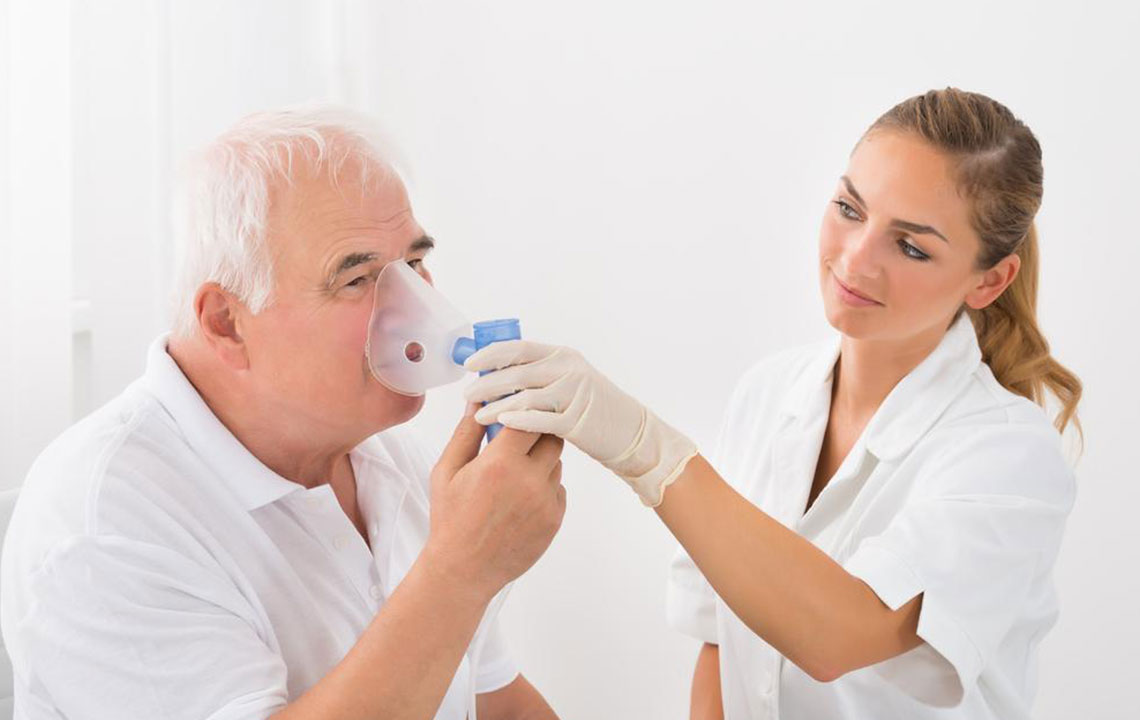Pulmonary Fibrosis – Symptoms, Causes, and Treatment
When the lung tissue is scarred and damaged, it causes the lung disease called pulmonary fibrosis. The stiff and thickened tissue makes it difficult for the lungs to work properly. As the disease advances, people experience more shortness of breath.
The scarring can be caused due to a number of factors. However, the doctors cannot figure out the reason in most of the cases. If the cause of the illness cannot be determined, then the condition is termed as idiopathic pulmonary fibrosis.

Though the lung damage as a result of pulmonary fibrosis cannot be reversed, the symptoms can surely be eased, and the quality of life can be improved with therapies and medications. Lung transplant is the ultimate option and hope for many people to get cured of pulmonary fibrosis.
Symptoms of pulmonary fibrosis include:
– Dry cough
– Fatigue
– Aching joints and muscles
– Unexplained weight loss
– Rounding and widening of the fingertips
The course and severity of pulmonary fibrosis and symptoms vary from person to person. Some people fall prey to the disease very fast, while the health of others with moderate symptoms deteriorates slowly over several months or years.
Some patients may suffer from the rapid aggravation of their symptoms like extreme shortness of breath lasting for several days to weeks. People having acute exacerbations can be placed on a mechanical ventilator. Doctors treat this condition with corticosteroid and antibiotics along with other medications.
Causes of pulmonary fibrosis
Pulmonary fibrosis causes the tissue between and around the air sacs in your lungs to thicken and scar. This makes it hard for oxygen to go through your bloodstream. There are many reasons that can cause this illness. Some of the reasons include certain medical conditions, long-term exposure to toxins of certain types, medications, and radiation therapy.
Environmental factors and occupational hazards
Exposure to pollutants and toxins for a longer period can extensively damage your lungs. These include:
– Asbestos fibers
– Silica dust
– Coal dust
– Hard metal dust
– Animal and bird excreta
– Grain dust
– Radiation treatments
Most people who have gone through radiation therapy to treat breast or lung cancer show signs of damage to the lungs sometimes years and at times months after the initial round of therapy. The amount of damage depends on:
– Amount of radiation administered
– Amount of exposure of the lung to radiation
– Presence of any other deep-rooted lung disease
– Use of chemotherapy
– Medications
There are several drugs that can damage your lungs beyond repair. Some of the most harmful types are listed below:
Chemotherapy drugs – Drugs that are specifically designed to obliterate cancer cells like cyclophosphamide and methotrexate can damage lung tissue as well.
Antibiotics – Antibiotics like ethambutol or nitrofurantoin can have adverse effects on lung tissue.
Heart medications – Medicines that are used to treat irregular heartbeats like amiodarone can harm lung tissue.
Anti-inflammatory drugs – Rituximab and sulfasalazine are some of the anti-inflammatory drugs that cause damage to the lung.
Treatment for pulmonary fibrosis
It is disheartening to know that the lung scarring caused by pulmonary fibrosis cannot be reversed. There are no effective treatment options available for this condition as of now. The progression cannot be stopped. However, there are treatments to improve symptoms though temporarily and also to slow down the progression of the disease. There are treatments to improve the quality of life as well. Based on the extent of the lung disease, doctors draw out the most appropriate treatment plan for the patient.
Medications for pulmonary fibrosis
There are two new medications that have been approved by the US FDA which help slow down the progression of idiopathic pulmonary fibrosis. These are nintedanib and pirfenidone. However, one must know that nintedanib causes nausea and diarrhea and pirfenidone causes nausea, diarrhea, and rashes. Research is being conducted to find treatment for pulmonary fibrosis. Doctors also recommend anti-acid drugs to treat GERD, a digestive condition, which affects people with idiopathic pulmonary fibrosis.
Oxygen therapy
Oxygen usage cannot prevent lung damage but it surely can:
– Make exercising and breathing easier
– Reduce high BP on the right side of the heart
– Lessen or prevent complications causing due to low blood oxygen levels
– Improves your sense of well-being and sleep
– While some people use oxygen all the time, some other require it only while sleeping or exercising. Such patients have to carry a canister of oxygen wherever they go.
Pulmonary rehabilitation
Pulmonary rehabilitation can manage to improve daily functioning and symptoms. This program mainly focuses on:
– Nutritional counseling
– Educating about your present condition
– Support and counseling
– Breathing techniques to help improve lung efficiency
– Physical exercise to increase your endurance level.
Lung transplant
Lung transplantation can help people with pulmonary fibrosis to improve quality of life and to lead a longer life. However, the surgery involves its fair share of complications as well like infection and rejection. The doctor will discuss with you if a lung transplant is a viable option for your present condition.